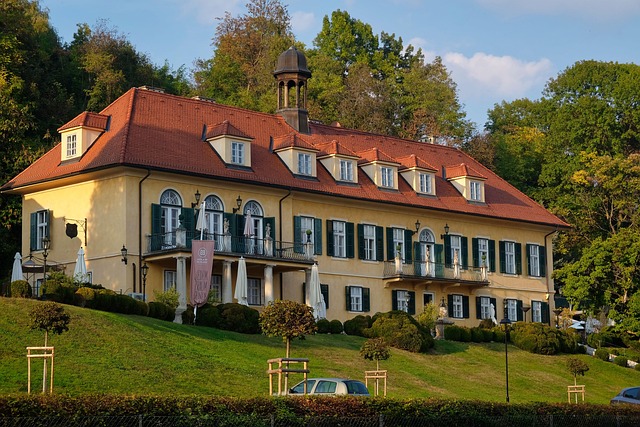Investment property lending in Colorado is a thriving sector, fueled by diverse financing options for businesses and investors. Stringent eligibility criteria include financial assessments, documentation, and business plans to ensure responsible lending. Understanding interest rates, loan terms, and market conditions is crucial when exploring commercial real estate loans. The application process involves extensive disclosures and property-related documents to assess project viability. These mechanisms empower entrepreneurs to shape Colorado's dynamic market through renovation, construction, or land purchases.
In the dynamic landscape of commercial real estate, understanding investment property lending in Colorado is paramount for both borrowers and lenders. This article navigates the intricate world of commercial real estate loans, offering insights into key aspects such as eligibility criteria for investment property lending in Colorado, interest rates, loan terms, and available loan types. By delving into these areas, we aim to equip readers with essential knowledge for informed decisions in the vibrant Colorado market.
- Understanding Commercial Real Estate Loans in Colorado
- Eligibility Criteria for Investment Property Lending
- Interest Rates and Loan Terms Explained
- Types of Commercial Loans Available
- Application Process and Document Requirements
Understanding Commercial Real Estate Loans in Colorado

Commercial real estate loans in Colorado play a pivotal role in shaping the state’s dynamic economy, offering a unique blend of opportunities for both investors and businesses. The investment property lending landscape here is characterized by diverse options tailored to meet the varied needs of entrepreneurs and property owners. Whether it’s financing a new office complex, renovating an historic retail space, or acquiring a warehouse for e-commerce operations, Colorado’s market provides robust support.
This sector is particularly attractive due to the state’s thriving business environment, boasting a healthy mix of technology startups, outdoor industries, and a growing arts scene. As such, commercial real estate loans in Colorado are designed to be flexible, catering to both short-term financing needs for quick flips and long-term investments in stable properties. Lenders here recognize the value of these assets as pillars of local communities, ensuring accessible and competitive rates for those looking to capitalize on the state’s prosperous investment property lending opportunities.
Eligibility Criteria for Investment Property Lending

In Colorado, securing a commercial real estate loan for an investment property involves meeting specific eligibility criteria set by lenders. Potential borrowers should expect to demonstrate strong financial health and a solid understanding of their investment strategy. Lenders will typically assess credit history, debt-to-income ratios, and down payment amounts to gauge the borrower’s ability to repay the loan. A stable and consistent cash flow from the investment property is also crucial for approval.
Investment property lending in Colorado requires thorough documentation, including financial statements, tax returns, and detailed information about the property itself. Lenders may also require a detailed business plan outlining the investment strategy, market analysis, and projected returns. These stringent criteria ensure that loans are granted to qualified borrowers who have a realistic chance of successful repayment, thereby minimizing risk for both the lender and the borrower.
Interest Rates and Loan Terms Explained

When considering a commercial real estate loan in Colorado for an investment property, understanding interest rates and loan terms is paramount. Interest rates, expressed as a percentage, determine the cost of borrowing money to fund your investment. They can vary based on factors like market conditions, creditworthiness, and the type of property. In today’s competitive market, fixed rates are often preferred for offering stability, while adjustable rates may appeal to those looking for initial lower costs.
Loan terms refer to the duration over which you’ll repay the loan. Shorter terms generally come with higher monthly payments but less interest paid overall. Longer terms result in lower monthly outlays but more interest accrued over time. Lenders typically offer loans ranging from 5 to 30 years, with terms tailored to align with your investment strategy and financial capabilities. It’s crucial to balance the benefits of lower monthly payments versus the total cost of borrowing when selecting a loan term suitable for your Colorado investment property.
Types of Commercial Loans Available

In the vibrant landscape of commercial real estate in Colorado, investment property lending plays a crucial role in fueling growth and expansion. There are several types of commercial loans available to cater to diverse business needs. One prominent option is the traditional 7A loan, designed for smaller businesses seeking funding for acquisition or construction. These loans offer favorable terms and are often guaranteed by the U.S. Small Business Administration (SBA), making them an attractive choice for entrepreneurial ventures.
For larger-scale projects, commercial mortgage loans provide a robust framework. These loans are tailored to investment properties, offering flexible repayment structures and competitive interest rates. Developers and investors can leverage these funds for extensive renovation, construction of new facilities, or the purchase of land, thereby contributing to the state’s dynamic real estate market. When considering investment property lending in Colorado, understanding these loan types is essential for navigating the intricate tapestry of financing options available.
Application Process and Document Requirements

The application process for commercial real estate loans in Colorado, particularly for investment properties, is a structured procedure designed to assess the viability and potential of the project. Borrowers are required to submit comprehensive applications that include detailed financial information such as personal and business tax returns, financial statements, and credit reports. These documents play a crucial role in evaluating the borrower’s financial health and their ability to repay the loan.
In addition to financial disclosures, prospective lenders in Colorado typically demand property-related documents like appraisals, market analysis reports, and detailed proposals for the use of funds. This is essential for investment property lending as it ensures the project aligns with the lender’s criteria and demonstrates a clear understanding of the market dynamics and potential returns.
Commercial real estate loans in Colorado offer a robust framework for investors, with diverse loan types catering to various property needs. Understanding eligibility criteria and interest rate structures empowers prospective borrowers to navigate the market effectively. By delving into the application process and required documents, investors can secure funding for their investment property lending endeavors in Colorado, unlocking opportunities for lucrative real estate ventures.
